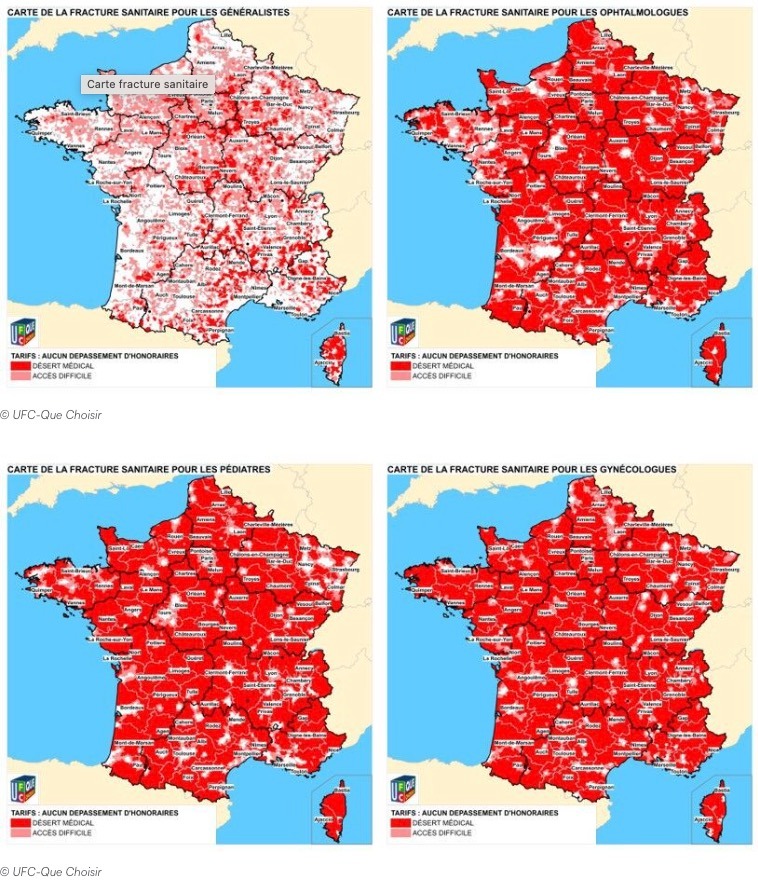Published on
Updated
Reading 2 min.
Like every year since 2012, UFC-Que Choisir takes stock of inequalities in access to care in France. Their new study shows the worsening of the situation, to the point that the Union has decided to file an appeal with the Council of State. Doctissimo spoke with its president, Marie-Amandine Stévenin.
Doctissimo: Concerning access to care, have you noticed an evolution in the “health divide” this year?
Marie-Amandine Stévenin : It is the least we can say. For this study, we were interested in access to a doctor (general practitioner or specialist) based on two criteria: the geographical dimension (less than 45 minutes by car) and the financial aspect (doctor practicing in sector 1) . The results are edifying!
If we look only at sector 1 doctors, we realize that one child in two (50.3%) lives in a medical desert and does not have access to a sector 1 pediatrician less than 30 years old. minutes from his home. Nearly 6 in ten French people are in a medical desert regarding ophthalmologists and nearly 7 in ten women are in a medical situation regarding gynecologists.
Overall, 83% of our fellow citizens live in a medical desert for at least one of the specialties!

And the most worrying thing is that the situation is getting worse, year after year. For example, four years ago, in 2019, 44% of general practitioners refused new patients, today there are 51.5%! This is worrying, especially as the population is generally aging in France and requires closer medical monitoring.
You announce an appeal to the Council of State against the government. Why take such action?
Marie-Amandine Stévenin : We wrote to the government a few years ago to denounce the situation. But faced with the State’s inaction, we ask the Council of State to take courageous measures because the situation is intolerable.
Access to care is conditional on having money and being able to pay excess fees. This creates a two-tiered medicine, where some of our fellow citizens end up giving up treatment. While the right to health is protected by texts, it is a fundamental right.
We therefore criticize the State for not putting in place measures that work, such as regulating the installation of doctors. New doctors should not be able to settle in overstaffed areas, except in special cases, for example if a doctor from sector 1 retires and a new doctor from sector 1 always replaces him. And in our opinion, a new doctor should only be able to practice in sector 1 or in the OPTAM sector, where excess fees are covered in full by mutual insurance companies.
What do you hope for from this approach?
Marie-Amandine Stévenin : I would like to remind you that beyond the referral to the Council of State, UFC-Que Choisir also carried out local actions today, through our local offices, in order to denounce this health divide. Each of our fellow citizens is invited to consult the interactive map to see the situation and to sign the petition “Access to care: I accuse the State”.
By accusing the State of its inaction, we hope to win our case. We are waiting for real concrete measures to be taken, because doctors will be trained, but this will take time. Now is the time to act!
